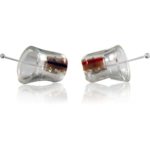Disclosure: Some of the links in this post are affiliate links. As an Amazon Associate, we earn from qualifying purchases. If you click on the link and purchase the item, we may receive an affiliate commission, at no extra cost to you. Learn more
Poor sleep quality is linked to everything from type 2 diabetes to cardiovascular disease. However, sometimes people feel profoundly frustrated by insomnia or restlessness, wondering where they’re going wrong. These six tips are sure to help you get a better night’s sleep, boosting your health and helping you to feel rejuvenated.
1. Change the setup of the room
 You might not realize just how many subtle things influence your sleep quality. In particular, experts recommend that you keep the temperature of your bedroom between 64.4 and 75.2 degrees Fahrenheit. It’s also smart to fit thick blackout curtains that keep out any light from the street, and to try wearing earplugs if you don’t have double-glazed windows or find yourself easily disturbed by sounds from outside.
You might not realize just how many subtle things influence your sleep quality. In particular, experts recommend that you keep the temperature of your bedroom between 64.4 and 75.2 degrees Fahrenheit. It’s also smart to fit thick blackout curtains that keep out any light from the street, and to try wearing earplugs if you don’t have double-glazed windows or find yourself easily disturbed by sounds from outside.
It is also recommended to sleep in a complete darkness so unless you have window blinds, you can get yourself a good quality sleep mask and wear it while you sleep.
2. Invest in a good bed
Both the mattress and the bed frame matter when it comes to getting a good night’s sleep. Even if you don’t feel sore when you’re lying in bed, your bed may not be conducive to full relaxation. However, there’s no one bed that suits everyone, so seek advice when making a new purchase.
Pillows are also important too, so experiment with degrees of firmness and different types of materials.
3. Try relaxing sleep rituals
 Whether you feel happy and loose-limbed after a hot bath, enjoy reading a novel or practice meditation, try to spend at least 40 minutes winding down before you try to sleep. Many are tempted to watch television as a way to relax, but looking at a bright screen can trick your brain into thinking it is still daytime, leading to a lack of appropriate melatonin production.
Whether you feel happy and loose-limbed after a hot bath, enjoy reading a novel or practice meditation, try to spend at least 40 minutes winding down before you try to sleep. Many are tempted to watch television as a way to relax, but looking at a bright screen can trick your brain into thinking it is still daytime, leading to a lack of appropriate melatonin production.
There is some evidence that designing a predictable ritual that you always follow before bed may promote more restful sleep.
You may also want to try using a white noise in a background when falling asleep – this will help your body and mind fall sleep faster and enter REM phase earlier.
4. Maintain regular bedtimes
Wherever possible, go to bed at the same time each night so that your body naturally knows when it can expect to go into “resting” mode. If you have to make a change to your bedtime for some reason (such as work or family commitments), gradually approach that change by adjusting your bedtime by just 15 minutes per night.
5. Avoid naps during the day
An early evening nap can seem appealing, especially if you’ve retired and the day is now your own. However, anyone who is struggling to sleep at night should eliminate naps to see if this small change influences insomnia. If you absolutely need a nap, try to restrict it to the afternoon.
6. Cut out late night meals and snacks
If you eat heavier foods later in the day, your body may still be working to digest them when you’re trying to fall asleep, and this process can keep you awake long after your bedtime. In addition, if you suffer from acid reflux, then both spicy and acidic foods should be removed from your evening diet.
Finally, it’s worth noting that underlying health problems are sometimes the cause of sleep difficulties. If incorporating the above tips doesn’t help to provide you with restful sleeps, talk to your doctor about any illnesses or medications that could be playing a role.
Disclosure: Some of the links in this post are affiliate links. As an Amazon Associate, we earn from qualifying purchases. If you click on the link and purchase the item, we may receive an affiliate commission, at no extra cost to you. Learn more





































Add Comment